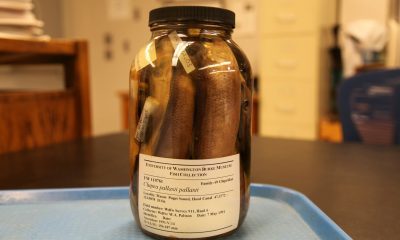By Gwyn Wright via SWNS
People in their early seventies who do just 20 minutes daily exercise could fend off heart problems in their twilight years, according to a new study.
Scientists believe just 20 minutes of moderate to vigorous exercise among 70 to 75-year-olds reduces their risk of developing a heart condition when they are older than 80.
Researchers have long known that physical activity lengthens our years and reduces the risk from cardiovascular disease, regardless of gender or ethnicity.
Until now, few studies have probed whether exercise in later life can ward off heart attacks and strokes in late old age.
For the study, the researchers drew on the Progetto Veneto Anziani study of 3,099 Italians aged 65 and over.
Initial tests including a detailed medical history, physical examination, scans and a range of blood tests were carried out between 1995 and 1997.
Two further assessments were carried out four and seven years later.
When the study began, women were more likely than men to have more than four coexisting conditions.
Osteoarthritis, osteoporosis and chronic kidney disease were more common among women than men while diabetes and chronic obstructive pulmonary disease were more common among men than women.
Participants filled in questionnaires about how much exercise they did.
Moderate exercise included walking, bowls and fishing while vigorous activity included working out at the gym, cycling, dancing, swimming and gardening.
via GIPHY
People who clocked up 20 minutes of exercise or more were deemed to be active while those who did less than that amount of physical activity were deemed to be inactive.
Men were more likely to be physically active than women.
Participants were split into four groups- those who remained inactive, those who started slow but began exercising more over time, those who started off active but got lazier and those who always remained hooked on exercise.
Important background information on variables such as household income, educational attainment, smoking, drinking and the number of people in a household were also taken into account.
Every participant had their health tracked through hospital discharge records and death certificates up to the end of 2018.
At that time, 2,754 people had complete data about their health, of whom 1,398 (60 percent) were women.
During the monitoring period, 1,037 new diagnoses of heart disease, heart failure and stroke were made.
An active lifestyle and physical activity over time were associated with a lower risk of cardiovascular disease and death in both men and women.
The biggest reduction in risk was found in new cases of coronary heart disease and heart failure in late old age.
No significant link between exercise and the risk of stroke was found.
Men who took regular exercise were at a 52 percent lower risk of developing heart disease than those who tended to shirk it.
Exercising at 70 appeared to have the greatest benefits later in life.
The sharpest reduction in heart disease and heart failure was found in people who exercised for 20 to 40 minutes a day.
The links were strongest among men but active women also had a lower risk of dying from a heart condition.
The study is observational and cannot completely prove the link between exercise in early old age and a healthy heart.
Study author Dr. Claudio Barbiellini Amidei said: “These results suggest that public health policies should be targeted at promoting or beginning physical activity in mid- and early late life, given a probable greater effectiveness in reducing cardiovascular risks.
“At least 20 minutes of moderate to vigorous physical activity per day should be recommended to achieve the greatest cardiovascular benefits.
“Women doing more physical activity had consistently lower incidence rates of almost all cardiovascular outcomes despite the fact that the risk reduction did not reach statistical significance, but when considering overall mortality, risks were significantly reduced.”
In a linked editorial, Dr. Enrico Fabris and Dr. Gianfranco Sinagra said: "Movement is medicine’ also in late life. Even a small amount of [physical activity] may confer beneficial effects in older people, but if undertaken early rather than late."
The findings were published in the journal Heart.

 Parenting1 day ago
Parenting1 day ago
 Broadcast3 days ago
Broadcast3 days ago
 Broadcast2 days ago
Broadcast2 days ago
 Broadcast1 week ago
Broadcast1 week ago
 Funny1 week ago
Funny1 week ago
 Shopping1 week ago
Shopping1 week ago
 Money3 days ago
Money3 days ago
 Parenting1 week ago
Parenting1 week ago






















